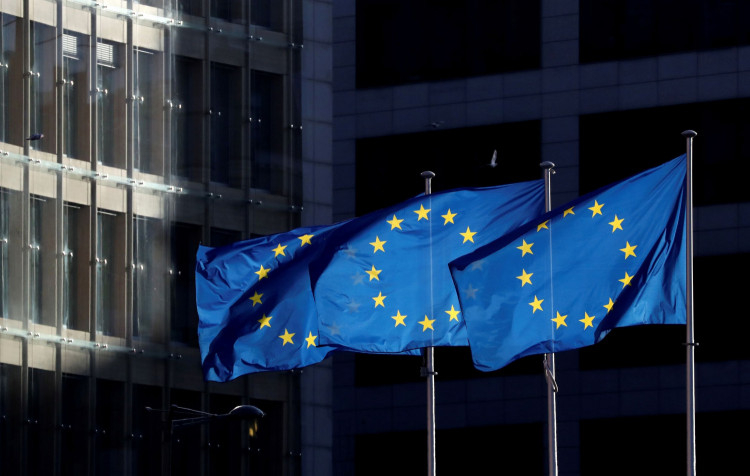The European Union's Internal Market Commissioner, Thierry Breton, recently reached out to top executives of major social media platforms, including X (formerly known as Twitter) led by Musk, Meta overseen by Zuckerberg, and TikTok headed by Zhou Shouzi, emphasizing the need to promptly remove false information and illegal content from their platforms.
Breton, in a letter dated October 11 to Musk, expressed concerns over indications that X has been utilized to disseminate illegal content and misinformation within the EU, especially since the escalation of the Israel-Palestine conflict a week prior. Breton urged X to liaise with law enforcement agencies and Europol and to swiftly address the EU's concerns.
Previously, an X user named "The Punisher" shared a screenshot of a purported "White House memo" claiming the U.S. announced a military aid package of $8 billion to Israel. This claim rapidly spread across various social media platforms. However, upon verification, no such information was found on the official White House website, revealing the screenshot to be fabricated. Additionally, a video circulated on X alleging that an Israeli warplane bombed an Orthodox church in Gaza. Church officials later debunked these reports as false.
In response to Breton's concerns, X's CEO, Linda Yaccarino, stated that the platform had addressed over 80 removal requests from the EU in a timely and objective manner. She also requested more detailed information regarding the illegal content and mentioned that X had not received any notifications from Europol about such content.
Since Musk's acquisition of X, the platform has primarily utilized the "Community Notes" feature for content moderation. Former X employee Kolina Koltai believes this mechanism is insufficient in curbing illegal content, asserting that the platform still harbors a significant amount of misinformation. As early as September of this year, a senior EU official labeled X as the primary source of fake news and stressed that Musk must adhere to the "Digital Services Act."
On October 12, EU regulators, under the Digital Services Act, formally requested X to provide information regarding illegal content and misinformation related to the Israel-Palestine conflict on its platform. The investigation will focus on X's policies and practices concerning illegal content, complaint handling, risk assessment, and risk mitigation.
X is required to submit information about its "Crisis Response Protocol" to the commission by October 18 and provide additional relevant data after October 31. The commission will then determine the next steps based on this information.
On October 11, Breton also wrote to Zuckerberg, urging him to remove false and illegal content related to the Israel-Palestine conflict from Meta's platforms and to respond within 24 hours. In response, a spokesperson for Meta stated that they have assembled a team of experts to ensure platform safety and prevent the spread of misinformation.
The following day, Breton penned a letter to TikTok CEO Zhou Shouzi, emphasizing the platform's responsibility to shield its younger users from violent content. He urged Zhou to expedite the removal of violent images and misinformation related to the Israel-Palestine conflict and to respond within 24 hours. A TikTok spokesperson confirmed receipt of the letter and expressed intentions to respond.
In January 2022, the European Parliament passed the Digital Services Act (DSA), aiming to regulate social media, online marketplaces, Very Large Online Platforms (VLOP), and Very Large Search Engines (VLOSE) to ensure digital space safety and protect users' fundamental rights.
The DSA is part of the Digital Services Package, which also includes the Digital Markets Act (DMA). While the DMA focuses on ensuring fair competition in the digital market by preventing large corporations from exploiting their dominant market positions, the DSA targets various forms of illegal content, advertisements, and misinformation to create a safer digital environment.
Companies found in violation of the DSA could face fines of up to 6% of their global revenue from the previous fiscal year. Repeat offenders risk being banned from operating in Europe altogether.
Additionally, the European Commission plans to levy DSA regulatory fees on the first batch of companies under its purview. The total fee amount will be based on the estimated costs incurred by the commission in executing its regulatory duties, capped at 0.05% of the institution's net profit from the previous fiscal year. Companies failing to pay the fees within the stipulated timeframe will incur penalties based on the European Central Bank's refinancing rate.
The European Commission anticipates collecting regulatory fees amounting to 45 million euros (approximately 340 million yuan) next year.
Currently, Europe is intensifying its regulatory measures against multinational tech companies. Last year, when Musk presented his acquisition proposal to Twitter's board, he described it as a "platform for global freedom of speech." In response, EU leaders emphasized that Musk's reforms must comply with EU laws.






